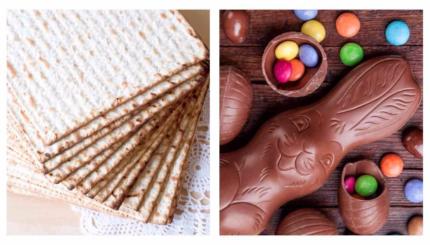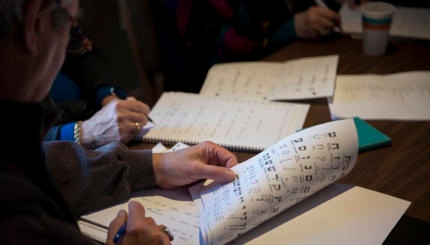Each year NYU’s Bronfman Center plans Shabbat for 2,000, an event which strives to engage 2,000 community members in a Shabbat together. This year, students in the NYU community recognized the difficult times we are all facing and decided to take it upon themselves to create a week-long initiative with the goal of engaging 2,000 community members in helping to alleviate hunger.
The intense week of service begins this Thursday, March 26th kicking off with a “Challah for Hunger” event. Challah will be baked and sold around NYU’s campus and all proceeds will go straight to Project FEED, in efforts to end hunger in New York City. The week is jam packed with awesome programming. There is a concern for hunger fun run, a Shabbat lunch-and-learn about hunger, Meals on Heels food delivery, supermarket street teams, volunteering at the HUC soup kitchen, and more. The week will culminate with the Big Bang Bash at BLVD to celebrate the efforts of the week and with the hopes of raising $10,000.
This amazing effort, being pulled together by all different students on NYU’s campus, is at quite an apropos time. With Passover around the corner, we have a custom of welcoming those less fortunate into our homes for the seder as well as making sure that all have the ability to have food for their own seder. Rabbi Ronald Isaac, in our article on Maot Hittin, states “the custom of assisting the poor with free provisions of food for Passover is very ancient. The Talmud (Pesahim 99b) mandated a distribution of wine to the poor for the obligatory four cups at the Seder so that every person may proclaim the miracle of the exodus.”
What better way to prepare for Passover, the ultimate redemption, than by freeing the needy from their burden of hunger>
Those in the NYC area can go to Projectfeed.org to get the schedule of events or sign up to volunteer at one of the dozens of programs.
Shabbat
Pronounced: shuh-BAHT or shah-BAHT, Origin: Hebrew, the Sabbath, from sundown Friday to sundown Saturday.
Talmud
Pronounced: TALL-mud, Origin: Hebrew, the set of teachings and commentaries on the Torah that form the basis for Jewish law. Comprised of the Mishnah and the Gemara, it contains the opinions of thousands of rabbis from different periods in Jewish history.


